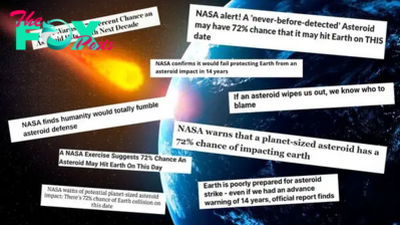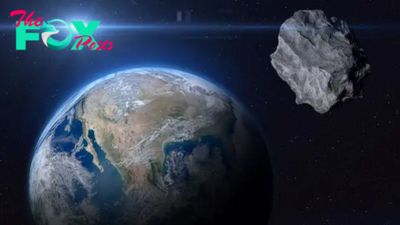Science
Gulf Stream's fate to be decided by climate 'tug-of-war'
The fate of the Gulf Stream will be decided by a "tug-of-war" between two types of melting from the Greenland Ice Sheet, a new study suggests.
Throughout the last ice age, between 16,800 to 60,000 years ago, fleets of icebergs launched from the coast of North America, causing vital ocean currents to weaken dramatically.
Now, researchers have found that, despite the present-day calving rates of icebergs from the Greenland Ice Sheet being as high as they were during some of these past events, runoff from Greenland's coasts may halt this disruption. The researchers published their findings May 30 in the journal Science.
"There's a tug-of-war between the more effective but decelerating ice discharge and less effective accelerating runoff," lead author Yuxin Zhou, a postdoctoral researcher at the University of California, Santa Barbara, told Live Science. "Those are the two iNFLuences that we're primarily worried about."
The Atlantic Meridional Overturning Circulation (AMOC), which includes the Gulf Stream, governs the climate by bringing nutrients, oxygen and heat in tropical waters north and cold water south. The current can exist in two stable states: a stronger, faster one that we rely on today, and another that is much slower and weaker.
Climate change is slowing this flow by sending fresh water from Greenland's melting ice sheet to make the water less dense and less salty. This has led to a growing number of studies suggesting that the current is slowing and could even be veering toward collapse.
The discharge of icebergs from the Laurentide Ice Sheet — which covered most of North America during the last Ice Age — are known as Heinrich events. The present-day cause of this melt is climate change, but during the last glacial maximum it likely resulted from a mixture of ocean heating and the weight of ice accumulating on the sheet.
-

 Science7h ago
Science7h agoMilky Way's black hole 'exhaust vent' discovered in eerie X-ray observations
-

 Science16h ago
Science16h agoScientists Track a Super-Sized Fungus That Hijacks Cicadas
-

 Science19h ago
Science19h agoNeutron star collisions could briefly trap a bunch of cosmic ghosts
-

 Science19h ago
Science19h agoFlorida family files claim with NASA after ISS space junk crashes into home
-

 Science1d ago
Science1d ago'Space potato' spotted by NASA Mars satellite is actually something much cooler
-

 Science1d ago
Science1d agoNo, NASA hasn't warned of an impending asteroid strike in 2038. Here's what really happened.
-

 Science2d ago
Science2d agoChina rover returns historic samples from far side of the moon — and they may contain secrets to Earth's deep past
-

 Science2d ago
Science2d agoMountain-size 'planet killer' asteroid will make a close approach to Earth this week — and you can watch it live

















